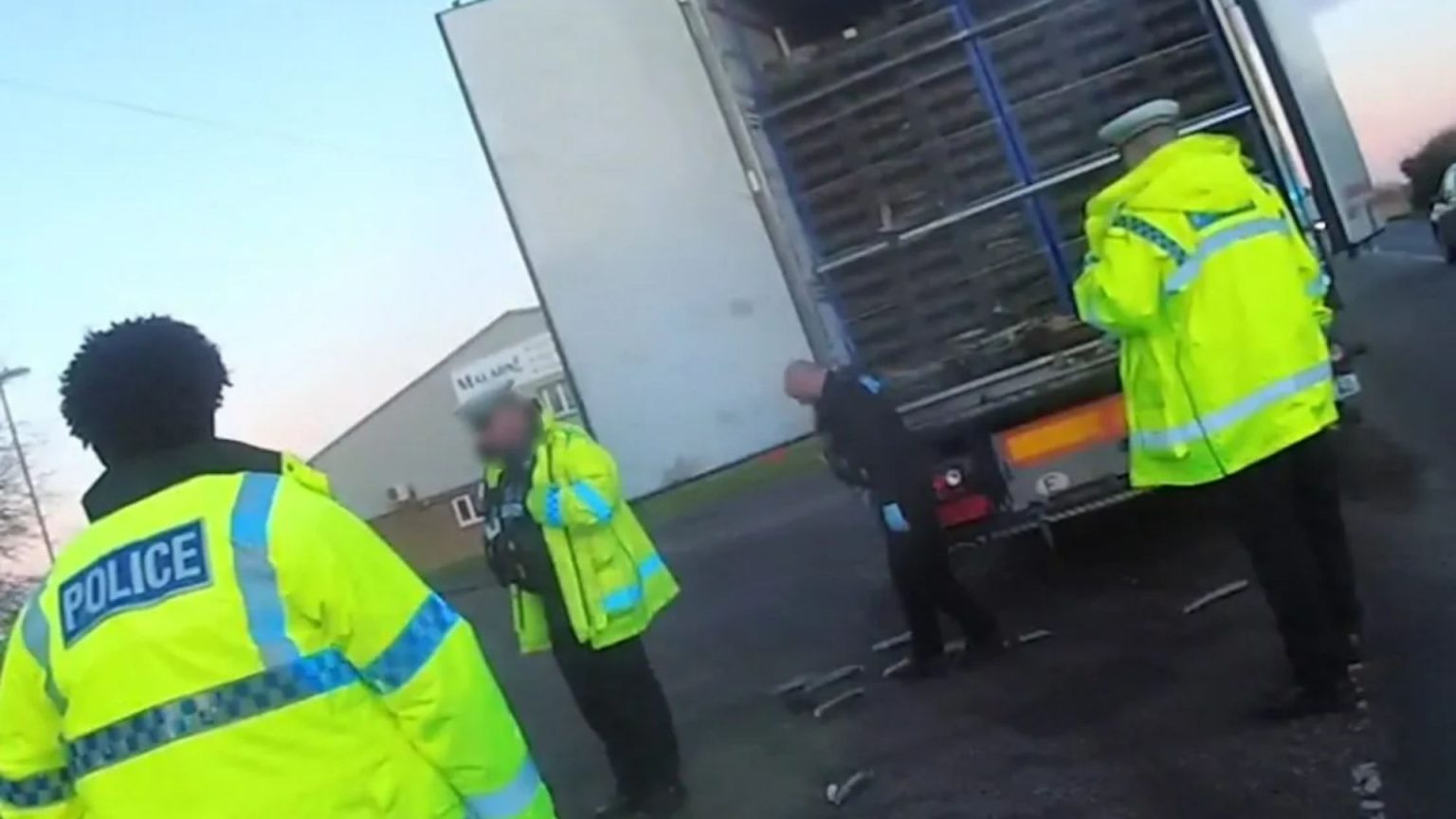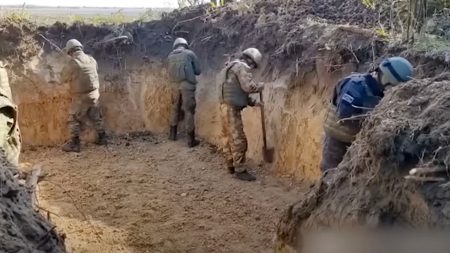On January 7th, a chilling incident unfolded in Cottenham, Cambridgeshire, where seven individuals, including two teenage girls, were discovered trapped inside a refrigerated lorry transporting cucumbers. The rescue operation began with a distressed call to a neighboring police force from a woman inside the lorry, pleading for help, stating she was trapped and struggling to breathe. This urgent call triggered a swift response from law enforcement, who successfully located the refrigerated HGV in Cottenham. Upon opening the lorry, officers discovered seven people huddled inside, all hailing from Eritrea and South Africa. The two teenage girls among the group recounted harrowing tales of mistreatment at the hands of human smuggling gangs, highlighting the perilous journey they had endured.
The discovery underscored the grim realities of human trafficking and the desperate measures people take to seek refuge or a better life. The refrigerated conditions inside the lorry posed a significant threat to the individuals’ health and safety, emphasizing the callous disregard for human life often displayed by criminal organizations involved in smuggling. The incident serves as a stark reminder of the vulnerabilities faced by migrants and asylum seekers, often forced to rely on dangerous and exploitative channels due to limited legal pathways. The two young girls’ accounts of mistreatment shed light on the traumatic experiences endured by those caught in the web of human trafficking, subjected to abuse and exploitation by those who profit from their desperation.
The driver of the lorry, a 59-year-old man, was immediately apprehended by police on suspicion of facilitating illegal entry into the UK. His arrest signifies a crucial step in disrupting the operations of human smuggling networks and holding those responsible accountable for their actions. The driver’s subsequent release on bail pending further investigation allows authorities time to gather evidence and build a strong case against him. This incident highlights the collaborative efforts of law enforcement agencies in tackling the complex issue of human trafficking, working across jurisdictions to identify and apprehend those involved in these illegal activities.
Following their rescue, the seven individuals were transferred to the care of immigration services. This step initiates the process of determining their individual circumstances and legal status within the UK. The immigration services will assess their claims for asylum or other forms of protection, ensuring they receive appropriate support and guidance throughout the process. This involves careful consideration of their individual stories, vulnerabilities, and the potential risks they face if returned to their countries of origin. The assessment process aims to uphold human rights principles while addressing the complexities of immigration law and border control.
The ongoing investigation into this case will delve deeper into the circumstances surrounding the smuggling operation. This includes tracing the route taken by the lorry, identifying other individuals involved in the network, and gathering evidence to prosecute those responsible. The investigation will likely involve international cooperation with law enforcement agencies in other countries to dismantle the entire smuggling operation and prevent further exploitation. By uncovering the full extent of the network’s activities, authorities can work to disrupt their operations and bring perpetrators to justice.
This incident underscores the pressing need for comprehensive strategies to address the root causes of human trafficking and irregular migration. These strategies must include efforts to improve conditions in source countries, providing safe and legal pathways for migration, and enhancing international cooperation to combat trafficking networks. Furthermore, raising public awareness about the realities of human trafficking and the vulnerabilities of its victims is crucial in fostering a society that actively works to prevent this form of modern-day slavery. Ultimately, addressing this complex issue requires a multi-faceted approach that tackles both the supply and demand sides of the equation, protecting vulnerable individuals while holding perpetrators accountable.











